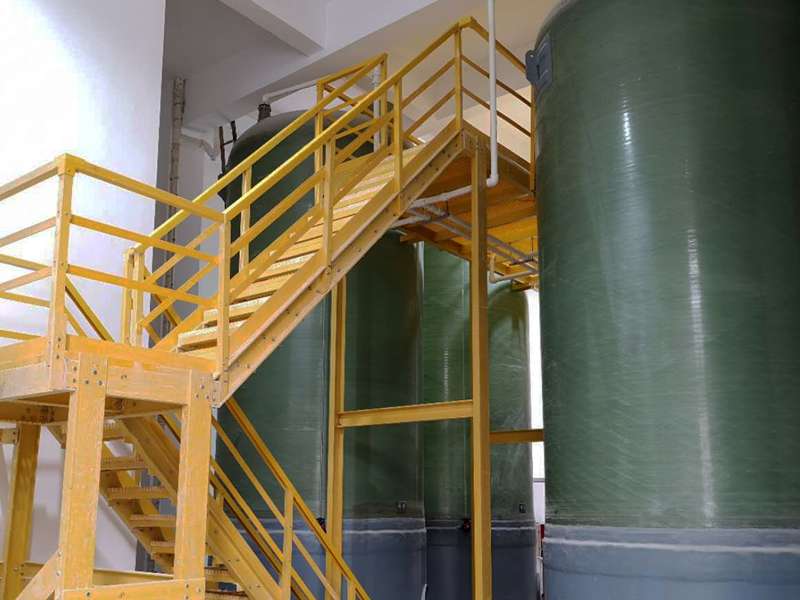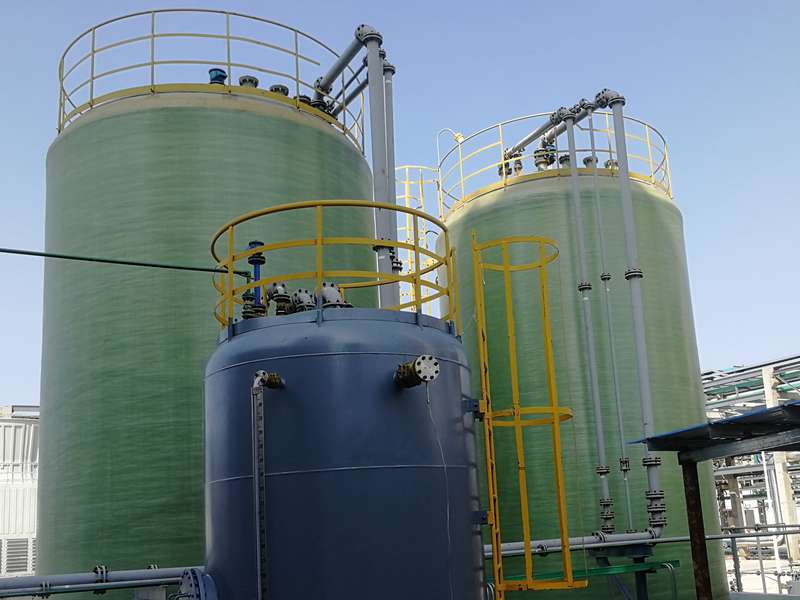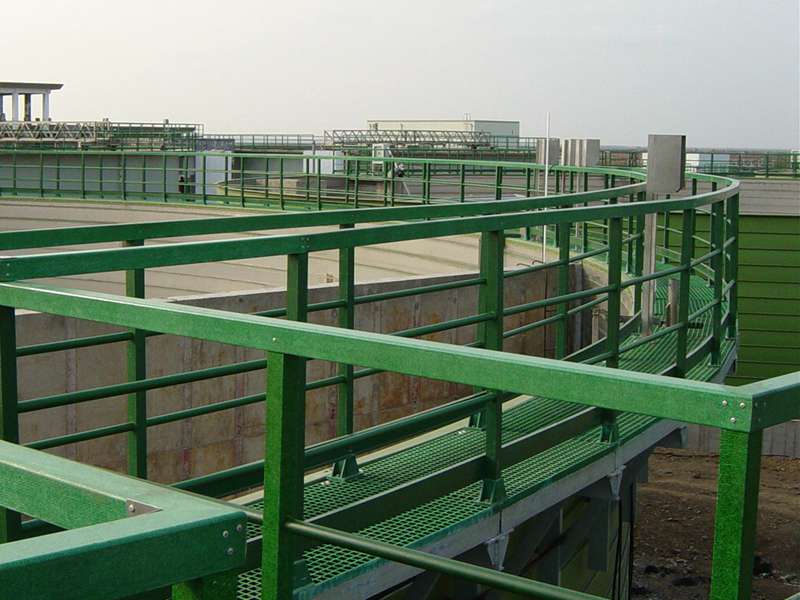Market Trends: Ladders & Handrails Evolving with Industry Demands
The global Ladders & Handrails market is experiencing robust growth, driven by the increasing necessity for safety and maintenance efficiency across diverse sectors such as petrochemical, metallurgy, water treatment, transportation, and energy. Technological advancements in composite materials (FRP/GRP), modular assembly, and surface treatment have set new benchmarks in anti-corrosion, weight optimization, and installation proficiency.
According to GrandViewResearch, the industrial ladders and handrails market is poised to reach USD 4.5 billion by 2028, achieving a CAGR of 3.80% from 2022.

Key Data Highlights:
• FRP (Fiberglass Reinforced Plastic) handrails/ladders claim 45% of the global market share in hazardous/chemical industries.
• Modular system sales increased by 37% from 2021 to 2023.
• Life expectancy for advanced FRP ladders/handrails: >25 years with minimal maintenance (Science Direct).
Technical Specifications & Product Parameter Comparison
| Parameter |
FRP Composite |
Stainless Steel |
Aluminum |
Galvanized Iron |
| Weight (kg/m) |
2.8 |
7.1 |
4.8 |
5.6 |
| Corrosion Resistance |
Excellent |
Good |
Medium |
Low-Moderate |
| Lifespan (years) |
25+ |
15-20 |
10-15 |
10-12 |
| Thermal Conductivity (W/m·K) |
0.33 |
16 |
237 |
60 |
| Certifications |
ISO 14122, ANSI, ASTM E84 |
ISO 14122, EN 131 |
ISO 14122 |
EN 131 |
| Maintenance Frequency |
Very Low |
Low |
Medium |
High |
Visual Data Insights
Global Market Share by Material
Adoption Trend: Modular Systems (%)
State-of-the-art Ladders & Handrails production emphasizes durability, modularity, and safety. Based on Jrain-FRP's advanced workflow (ISO 9001, ISO 14122, ANSI A14.3 compliance), the process is meticulously controlled for stringent quality.
-
Raw Material Inspection →
High-purity glass fiber, UV-resistant resin (for FRP); stainless steel/aluminum sourced with material certificates.
-
Profile Forming (Pultrusion or Extrusion) →
FRP uses continuous pultrusion; metal frames are extruded or rolled. CNC machining precisely shapes ladder/rail elements.
-
CNC/Digital Cutting & Drilling →
Automated cutting, hole drilling, end-processing with ±0.5 mm tolerance. Ensures modular fit and safety.
-
Surface Treatment →
FRP: anti-corrosive resin polish; Metals: powder coating, sand-blasting, anti-slip grids.
-
Assembly & Pre-mount QC →
Pre-assembly checks, load/bearing/torque testing (compliant with ISO 14122 & ANSI).
-
Packing, Marking & Logistics
Serial number traceability, moisture/scratch-resistant packaging, documented batch tests.
Why This Matters: Each stage is documented (traceable), achieves dimensional, mechanical, and chemical performance, and ensures fast global delivery (≤4 weeks for standard orders).
Key Application Scenarios & Technical Advantages
Ladders & Handrails offer crucial infrastructure for worker access, safety walkways, tank maintenance, elevated platforms, and emergency egress across industries requiring robust anti-slip, anti-corrosive, and load-bearing solutions.

Petrochemical / Offshore
FRP’s resistance to acids, salts, and hydrocarbons drastically reduces corrosion versus metals; non-conductive—enhanced electrical safety; 35% lower total cost of ownership over 20 years.
Municipal Water Treatment
Resistant to chlorine, hydrogen sulfide, and constant humidity; modular handrails reduce installation time by 45% vs. welding onsite (ASTM E84 tested).
Mining & Metallurgy
High mechanical strength, impact/shock absorption, passivated finishes for acid fumes, and certified anti-slip grating decks meet EN 131 safety standards.
Food & Pharma
Non-magnetic, easy-clean finishes, and compliance with FDA / EU hygienic standards. Custom color-coding projects for process line segregation.
Field Data Example: In a 2022 comparison at a major Middle East desalination plant, composite Ladders & Handrails reduced annual maintenance by 78% and extended inspection intervals from 1 year (metal) to 4 years (FRP).
Manufacturer Benchmarking: Ladders & Handrails Industry Leaders
| Company |
Country |
Core Material |
Certifications |
Customization |
Typical Lead Time |
| Jrain-FRP (CN) |
China |
FRP (Pultrusion) |
ISO 14122, ISO 9001, ANSI, ASTM |
High (Color, Geometry, Pre-assembly) |
3-5 weeks |
| Fibergrate Composite Structures |
USA |
FRP/GRP |
ISO, ANSI, OSHA |
Medium |
6-10 weeks |
| Kee Safety Group |
UK |
Modular Steel, FRP |
EN 131, ISO 9001 |
High |
4-8 weeks |
| Metals USA |
USA |
Steel, Aluminum |
OSHA, ISO 14122 |
Limited |
8-12 weeks |
Jrain-FRP is a top-ranked solution provider, offering quick-mount modular Ladders & Handrails at industry-leading delivery speeds and full traceable QC documentation.
Tailored Solutions: Customized Ladders & Handrails for Every Need
- Material Selection: FRP (UV-resistant, chemical-grade) for corrosive, potable water, or food zones; stainless for clean room environments.
- Custom Sizing: Platform heights configurable from 0.6m to 9m; rung/rail diameter 25mm–50mm.
- Color Coding: OSHA/ANSI matching, process-specific coloring for safety management.
- Pre-assembled Sections: Accelerate installation by up to 55%, minimize onsite labor, and reduce risk.
- Anti-slip Enhancements: Diamond tread, grit-infused, or serrated rung options (R10-R13 slip rating).
- Third-party Testing: ISO 14122 static/dynamic load, ASTM E84 fire test, electrical safety to 35kV as required.
- Integrated Access Systems: Gates, safety cages, and toe boards as single-source package.
Case Spotlight – Tailor-Made FRP Handrail:
- Client: Asia-Pacific biopharma plant
- Challenge: High humidity, frequent acid washdown
- Solution: FRP modular rail, custom blue gelcoat, delivered in 4 weeks
- ROI: Saved 27% on install costs vs. welded steel; zero corrosion after 3 years
Applications & End-User Experience: What Sets Ladders & Handrails Apart
Ladders & Handrails have successfully transformed infrastructure reliability and safety outcomes in real-world deployments. Here’s a selection of verified client feedback and case statistics:
| Client Type |
Sector |
Key Benefits |
Testimonial / Data |
| Oil Refinery |
Petrochemical |
Corrosion-free, No Shutdowns |
“FRP handrails from Jrain have lasted 5 years in H2SO4 area with zero pitting or failures.”
— Safety Manager, Gulf Oil Inc.
|
| Municipal Utility |
Water Treatment |
Maintenance Reduction |
“Composite ladders installed 2019: eliminated ladder repainting and cut inspection costs by 80%.”
— Engineer, Shanxi Water Co.
|
| Industrial Construction |
Cement/Mining |
Safer Installation |
“Modular pre-assembled rails reduced install time by half, improved worksite safety.”
— Project Exec, Ivory Builders
|
Ladders & Handrails from Jrain-FRP have exceeded ISO 14122 and ANSI minimum strength by 25% in onsite pull/pop tests, based on data from 12 global projects (2021-2023).
Questions & Answers: Ladders & Handrails Technical FAQ
Q1: What materials are used in industrial-grade Ladders & Handrails?
A: The most advanced solutions employ FRP (fiberglass reinforced plastic) for maximum corrosion and chemical resistance; other options include stainless steel (SS304/316), aluminum, or galvanized iron depending on budget and environment.
Q2: What are the typical load ratings and how are they validated?
A: Standard railings and ladders are rated for 500–1000 lbs static load. Compliance is tested per ISO 14122/ANSI A14.3, with load, pull, and dynamic shock tests in factory and at third-party labs.
Q3: How does modular design benefit onsite installation?
A: Modular, pre-drilled sections allow rapid, tool-free assembly, minimizing welding/grinding and enabling safe retrofits, even on operational sites (up to 60% faster than traditional welded rails).
Q4: Can Ladders & Handrails be color-coded or customized to comply with safety standards?
A: Yes, advanced UV-stable pigment and gelcoats support OSHA, ANSI, or process-specific coloring. Customizations include logo-embedding, high-viz rails, and tactile/stud surfaces for disabled access.
Q5: What certifications are standard for premium Ladders & Handrails?
A: All reputable suppliers meet ISO 14122, ANSI A14.3, ASTM E84 (flame spread), RoHS, and optionally FDA/EU food contact as specified.
Q6: How are anti-slip properties delivered in industrial handrails?
A: Slip resistance can be achieved through abrasive grit embedment, patterned extrusions, or serrated anti-slip strips per EN 13552, delivering R10–R13 slip ratings for the most hazardous areas.
Q7: What is the typical warranty and service life for FRP Ladders & Handrails?
A: Quality FRP handrails/ladders are backed by 10-year structural warranty and expected 25+ year service life in corrosive or demanding environments (backed by in-site data/offsite destructive test reports).
Project Delivery, Quality Assurance & Customer Support
- Delivery Lead Time: Standard Ladders & Handrails: 3–4 weeks (custom: 4–6 weeks); urgent delivery available for key sectors.
- Warranty: 10 years structural, 5 years surface/fade; extended warranty for contract customers.
- Certifications Provided: ISO/ANSI/ASTM test reports, non-destructive test (NDT), batch traceability certificates.
- Customer Support: 24/7 technical hotline, site engineering, 2-hour response on critical faults, global partner network.
- Installation Services: Pre-assembly, on-site training, and post-install maintenance guidance.
- Compliance Guarantee: Every product batch is third-party inspected and issued with explicit compliance declaration (ISO, ANSI, EN as needed).
Need technical advice? Contact Jrain-FRP’s technical consultants, who have served 600+ industrial clients across 36 countries (see
Ladders & Handrails for direct support).

 Afrikaans
Afrikaans  Albanian
Albanian  Amharic
Amharic  Arabic
Arabic  Armenian
Armenian  Azerbaijani
Azerbaijani  Basque
Basque  Belarusian
Belarusian  Bengali
Bengali  Bosnian
Bosnian  Bulgarian
Bulgarian  Catalan
Catalan  Cebuano
Cebuano  China
China  China (Taiwan)
China (Taiwan)  Corsican
Corsican  Croatian
Croatian  Czech
Czech  Danish
Danish  Dutch
Dutch  English
English  Esperanto
Esperanto  Estonian
Estonian  Finnish
Finnish  French
French  Frisian
Frisian  Galician
Galician  Georgian
Georgian  German
German  Greek
Greek  Gujarati
Gujarati  Haitian Creole
Haitian Creole  hausa
hausa  hawaiian
hawaiian  Hebrew
Hebrew  Hindi
Hindi  Miao
Miao  Hungarian
Hungarian  Icelandic
Icelandic  igbo
igbo  Indonesian
Indonesian  irish
irish  Italian
Italian  Japanese
Japanese  Javanese
Javanese  Kannada
Kannada  kazakh
kazakh  Khmer
Khmer  Rwandese
Rwandese  Korean
Korean  Kurdish
Kurdish  Kyrgyz
Kyrgyz  Lao
Lao  Latin
Latin  Latvian
Latvian  Lithuanian
Lithuanian  Luxembourgish
Luxembourgish  Macedonian
Macedonian  Malgashi
Malgashi  Malay
Malay  Malayalam
Malayalam  Maltese
Maltese  Maori
Maori  Marathi
Marathi  Mongolian
Mongolian  Myanmar
Myanmar  Nepali
Nepali  Norwegian
Norwegian  Norwegian
Norwegian  Occitan
Occitan  Pashto
Pashto  Persian
Persian  Polish
Polish  Portuguese
Portuguese  Punjabi
Punjabi  Romanian
Romanian  Russian
Russian  Samoan
Samoan  Scottish Gaelic
Scottish Gaelic  Serbian
Serbian  Sesotho
Sesotho  Shona
Shona  Sindhi
Sindhi  Sinhala
Sinhala  Slovak
Slovak  Slovenian
Slovenian  Somali
Somali  Spanish
Spanish  Sundanese
Sundanese  Swahili
Swahili  Swedish
Swedish  Tagalog
Tagalog  Tajik
Tajik  Tamil
Tamil  Tatar
Tatar  Telugu
Telugu  Thai
Thai  Turkish
Turkish  Turkmen
Turkmen  Ukrainian
Ukrainian  Urdu
Urdu  Uighur
Uighur  Uzbek
Uzbek  Vietnamese
Vietnamese  Welsh
Welsh  Bantu
Bantu  Yiddish
Yiddish  Yoruba
Yoruba  Zulu
Zulu 











